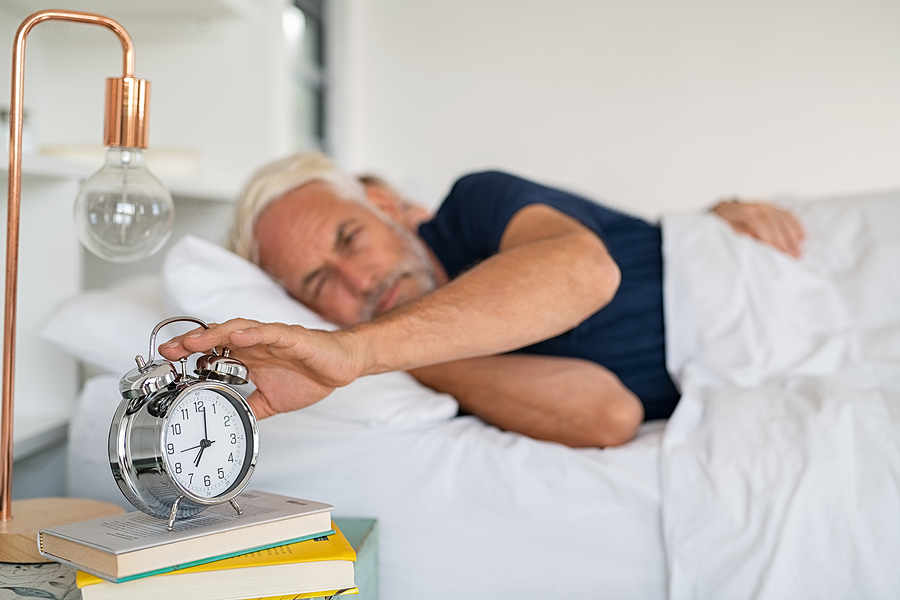Struggling with sleep this winter? Expert tips for a January reset
Peaceful sleep is paramount for our wellbeing
On these oh-so gloomy short days, with not much respite from dark mornings and dark nights, you’d think it would be easier to get a decent night’s sleep.
But factor in a winter of discontent, the rising cost of living and January blues, and chances are you’re tossing and turning – and feeling generally out of sorts as a result.
Plus, the fact there’s so much less daylight at this time of year can impact our sleep-wake cycles and energy levels.
“One of the most difficult issues we face in January is the tiredness we feel upon waking,” says Dr Maja Schaedel, clinical psychologist with a specialism in insomnia, sleep difficulties and trauma, and co-founder of the Good Sleep Clinic – explaining that this is linked to our circadian rhythms. “These are our internal body clocks, which help us to know when it’s daytime, and when it’s time to sleep – and they are massively affected by light,” she explains.

Is there anything better than a great night’s sleep?
When we’re exposed to daylight, our body inhibits the production of melatonin, says Schaedel – the hormone that helps ‘signal’ to our bodies that it’s time for sleep. In contrast, when daylight starts to dwindle, our body clocks begin to produce more melatonin to help us drift off.
“The production and inhibition of melatonin helps our bodies recognise when it’s day and night – and this is partly why it can be so difficult to feel alert and energised upon waking when it’s still dark outside,” highlights Schaedel.
Sleep plays a vital role in the maintenance of our mental health and general wellbeing. “It helps regulate our moods, process emotional information, and convert our experiences into memory,” says Angel Enrique, senior digital health scientist at SilverCloud Health.
“Sleep is our natural ‘first aid’, so when that’s disturbed, there tends to be a knock-on effect. Without proper rest, we’re unable to tackle the stressors and emotions we face in our everyday lives,” says Enrique.
View this post on Instagram
Moreover, when our mental health falters, our sleep can too. “The two are intrinsically linked and, as such, need to be treated with equal importance,” adds Enrique.
Here, experts share their top tips for getting the best sleep possible in January…
Turn on your lamp as soon as your alarm goes off
It may not be light outside when your alarm goes off, but you can help your body to recognise daytime by using artificial light, says Schaedel . “A bright light shining in your face will help to persuade your brain that it is, in fact, daylight, even if you have your eyes shut.”
It might not be the most pleasant way to wake up at first, but she says once you have managed to reset your body clock, it won’t feel quite as uncomfortable.
Face the elements and go for a walk
“It can be so difficult to muster the motivation to get outside and exercise when it’s cold, windy and raining, but the benefits of exercise to our sleep quality – and the benefits of exposure to daylight to our circadian rhythm – are clear,” says Schaedel.
View this post on Instagram
If you struggle to make time or find the motivation for it, she says to try to make your walk an ‘experience’ and see it as an invigorating, challenging moment, where you are fully faced with the drama of the natural world. If you’re working from home, add it into your routine as an alternative ‘commute’.
“You can also keep in mind that exercise leads to increase productivity and creativity, and that’s not to mention the strong link between exercise and improved mental health,” adds Schaedel.
Ditch the tech before bedtime
Winding down before you head to bed is just as important as the sleep itself, says Enrique. This can have a big impact on the quality of your slumber and ability to drift off.

Reading in bed can help reduce stress
“In the hour before you settle down for the night, try to avoid bright screens, such as laptops and mobile phones, which can stimulate your brain and keep you awake for longer,” Enrique suggests.
Instead, he suggests spending time on a wellness activity, such as reading or bathing – or anything you find relaxing.
Try the Scandinavian sleep method
With more and more people speaking openly about different sleeping arrangements with their partners, Dorothy Chambers, sleep expert at Sleep Junkie, says it’s no surprise people are looking for other ways to have a peaceful night’s sleep when sharing a bed.
“The Scandinavian sleep method is where a couple uses two separate duvets/blankets, rather than one large one to share,” explains Chambers. “It has its pros and cons – and definitely something that might not suit everyone’s personal sleeping preferences.”

Two duvets can be better than one
When looking at the benefit of this approach, she says it stops couples from having to fight over the duvet at night, which can be a big problem for some.
“Additionally, if you and the person you’re sharing a bed with run at different temperatures, separate duvets allow you to choose the type of duvet or blanket that suits you.”
Eat the best foods for sleep and time it right
Chambers suggests that ideally, you should be eating your last meal of the day at least three hours before bed and not eating again until breakfast (although this can vary depending on your individual health and needs, of course). And if you do need a midnight snack, she suggests keeping it light and sticking to sleep-friendly foods, such as bananas, almonds, or yoghurt.
“Some foods have specific sleep-promoting properties, while others make your stomach feel heavy and unsettled. For example, eating turkey makes you feel drowsier than red meat would,” she adds.
“Skip the cheeseburgers and fried foods around dinnertime, instead eat foods such as salmon, tuna, cod, turkey, whole grains, cottage cheese, kale, hummus, jasmine rice, sweet potatoes, and chickpeas.”
The Press Association
Latest posts by The Press Association (see all)
- BBC to air two-part Call The Midwife Christmas special - December 23, 2024
- 6 mind sports to exercise your brain and keep you sharp - December 20, 2024
- Quiz: What classic Christmas food or drink are you? - December 20, 2024
- Leftover turkey and watercress pie - December 20, 2024
- Catherine and William choose family shot for Christmas card photograph - December 19, 2024




















